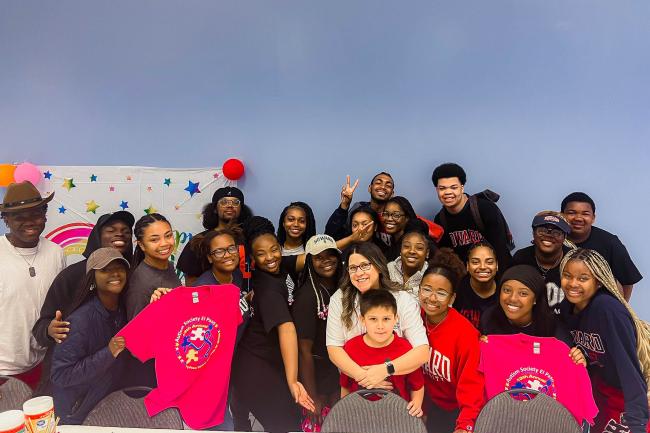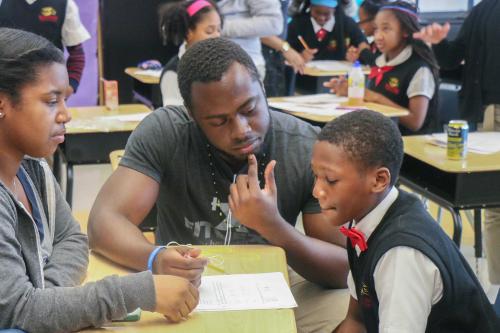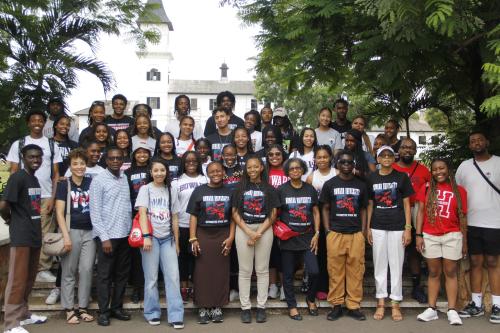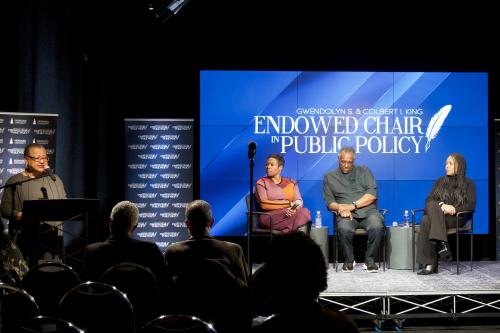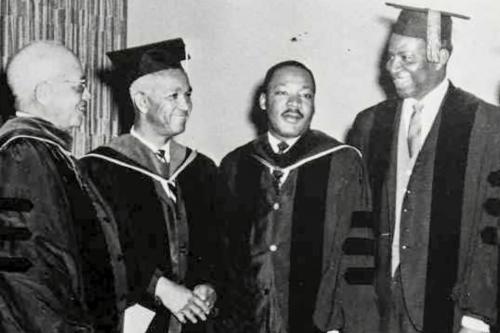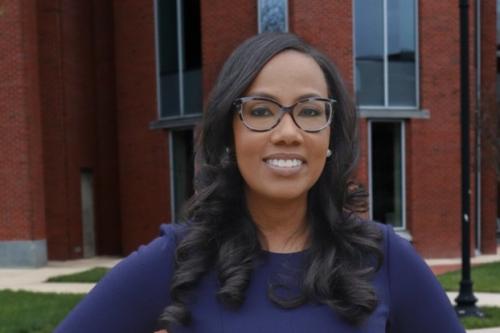From March 4 to 11, Howard University students participated in Howard University’s Alternative Spring Break (HUASB) service-learning trip in El Paso, Texas.
On day four of service, the 22 participants visited the Autism Society of El Paso, an affiliate of The Autism Society of America. Since the early 1990s, The Autism Society has been a nonprofit volunteer-based center in El Paso. Molly Saenz, the administrative assistant for the Autism Society, described the center as a place where families can exist freely without judgment while participating in the center's numerous events.
“We already struggle in El Paso to find resources and open environments,” according to Saenz. “Not many businesses are friendly to those with autism and their families, so we try to make it a place where they can come and just be themselves. I think if we weren't around, it would be a lot harder to find certain things for our families.”
Saenz had been involved in service her whole life, describing acts of service as her “love language.”
She feels God put her in this role to be able to educate other families with autism. Being a parent with two children with autism, Saenz understands the struggles that people with autism and their families face in society, having to be advocates for their children. She warned that the suicide rate for people with autism are very high in children, and “a lot of it comes from being bullied by peers.”
While working within the community, HUASB participants focused on youth empowerment and assisted with various tasks around the center. Additionally, they learned about the impact of the Autism Society.
Why not celebrate them here where they can be themselves and feel free?”
The center aids in educating families about resources for the needs of their loved ones, such as information about a diagnosis, locating a pediatrician, occupational therapist, speech therapist, physical therapist, and IEPs (Individualized Education Program).
The 22 students split into groups to work on various tasks around the center. Some participants cleaned, decorated, and folded flyers for upcoming events while others interacted closely with the community.
Cody Sims, a sophomore honors criminology major from Milwaukee, Wisconsin, had the opportunity to work directly with the children and formed lasting connections with them. For the three-hour service duration, he worked with the kids by painting, playing games, singing songs, cracking jokes, and getting to know them.
The service at the Autism Society of El Paso inspired Sims's future career aspirations to work with children.
“Having the opportunity to engage with these children and see how much they really enjoyed our company was fulfilling,” he said.
Raven Joseph, a junior international affairs major from Hamden, Connecticut, enjoyed working at an “interactive site,” where she engaged with the community at the autism society, describing her experience as a “success.” At the center, Joseph painted eggs in preparation for Easter, played board games, and made rabbit masks.
Joseph appreciated forming lasting impacts on the community through speaking to both parents and children at the center. A mom of two confided that it was the family’s first visit, but the students’ presence “helped them feel right at home.” Following her experience at the Autism Society, Joseph “would love to interact with the DC community more.” She plans to achieve this by searching for similar service organizations across campus.
The center fosters a sense of community through its several engaging events and runs an inclusive boys and girls club for ages 5-18. A father volunteer and occupational therapist lead the boys club, while the girls club is organized by one of the board members who has autism herself.
The boys and girls club serves the vital purpose of providing a welcoming environment for the children to grow, develop, and interact with others through multitude of events such as summer camps, holiday-themed activities, gardening, and crafts, but most importantly, the implementation of the birthday club. Saenz highlighted the importance of the boys and girl's club’s birthday program as it gives children with autism a “chance to feel included.”
“Many of our kids have a hard time attending birthday parties because it's so loud,” Saenz said. “There are so many people at birthday parties; it becomes too overwhelming for the children. So, why not celebrate them here where they can be themselves and feel free?”
Jose Manuel Paz Sr., a grandfather to twin boys at the Autism Society of El Paso and is grateful for the center's place in his grandsons’ life.
“Some of the things that they gain from the center is that they interact with other young people like themselves,” he said. “They come here, and they play, watch movies, write, but since they're non-verbal, it is hard for them to get this type of interaction elsewhere.”


